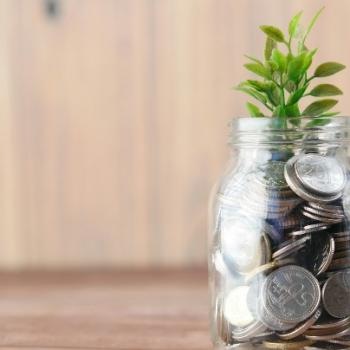Genesis 2:15 says, “The Lord God then took the man and settled him in the garden of Eden, to cultivate and care for it.”
As Christians, you are called to help sustain the planet. There are many ways to live a more eco-friendly lifestyle while serving God.
Here are some ideas to help inspire you.
1. Turn It Off
Conserving energy is vital in helping the planet. Leaving electronics on when not using them can waste energy. So, consider switching them off every once in a while. This also allows you to be present in the moment and free of distractions. So, at your next Bible study, consider turning off your phone to connect with the words of God fully.
Also, turning off your devices helps the battery last longer, reducing the need to charge it. This helps the environment since cell phones use about 2 to 6 watts of energy when charging. Also, unplug your cords when not powering your device. Along with saving Earth, you also save money on your electricity bills.

2. Invest in Eco-Friendly Technology
Investing in more energy-efficient technology helps conserve power when your devices are on. Buying smart devices, such as thermostats, is a great way to shrink your carbon footprint. These thermostats learn your temperature preferences, reducing your energy input.
Here is some more green technology to consider adding to your home:
- Solar water heater
- Solar panels
- Energy Star-rated appliances
- Smart power strips
3. Switch to Renewables
Change to a home energy supplier that uses renewable energy, such as solar. When using sustainable sources, we conserve other limited resources, such as fossil fuels. Adding solar panels is a great way to help the environment while lowering your electricity expenses.
Here are some other eco-friendly ways to power your home you might want to look into:
- Small solar electric systems: This can be a reliable and pollution-free option. It’s also a more cost-effective solution.
- Small wind electric systems: It’s one of the most affordable home-based renewable energy systems. It’s also versatile and can be used in applications, such as water pumping.
- Micro-hydropower systems: These can provide up to 100 kilowatts of electricity. Although, 10 kilowatts is usually enough to power your home.
- Small hybrid solar and wind electric systems: Often, wind or solar have different peak operating times. So, this mix of wind and solar produces power when you need it.
4. Eat Less Meat
The production of meat can have a negative impact on the environment. It takes lots of resources to raise livestock. The land used takes away other animals’ habitats. In fact, 77% of our habitable land is used for grazing cattle, sheep, and goats. Also, the meat industry releases greenhouse gases, such as carbon dioxide and methane. These gases contribute to global warming.
To reduce your carbon footprint, consider lowering your meat consumption. You could even try giving up meat for Lent. This not only helps the planet but can also improve your health. Red meat contains high levels of saturated fat, which can lead to heart issues.

5. Conserve Food
Each year, we waste about 108 billion pounds of food. This causes food to end up in landfills, emitting greenhouse gases, such as methane. To help you throw away less food, consider planning out your meals for the week. This way, when you go to the grocery store, you’ll be less likely to make impulse purchases.
Here are some more tips for reducing your food waste:
- Store food correctly
- Learn to preserve
- Reduce the clutter in your fridge
- Save leftovers
- Eat the skin of the food
Even some well-designed kitchen gadgets can help reduce the amount of food waste produced in the modern kitchen during meal prep.
6. Start a Home Improvement Project
Helping the environment can start at home. Consider performing home improvement projects that increase your energy efficiency. Insulating your garage door is a good one. This can reduce energy loss by up to 71%. It can also make the room feel more comfortable while lowering your utility bills.
Here are some other eco-friendly home improvement projects to consider:
- Tankless water heater
- Bamboo flooring
- Skylights
- Energy-efficient front door
- Pellet stove
7. Try to Reduce Your Plastic Intake
An average of 380 million tons of plastic is produced every year. This plastic often ends up in landfills and takes years to decompose. When it breaks down, it emits greenhouse gas. Also, the plastic can be washed into oceans and harm marine life.
There are simple steps you can take to reduce your plastic consumption. Consider taking a reusable bag to the grocery store. Also, try purchasing fewer plastic water bottles. Instead, bring a reusable water bottle to your youth group events.
Tips for Leading a More Eco-Friendly Lifestyle
As you spread the word of the Lord, also keep the environment in mind. God created Earth for us to live on and care for. So, follow these tips to start going green today.












